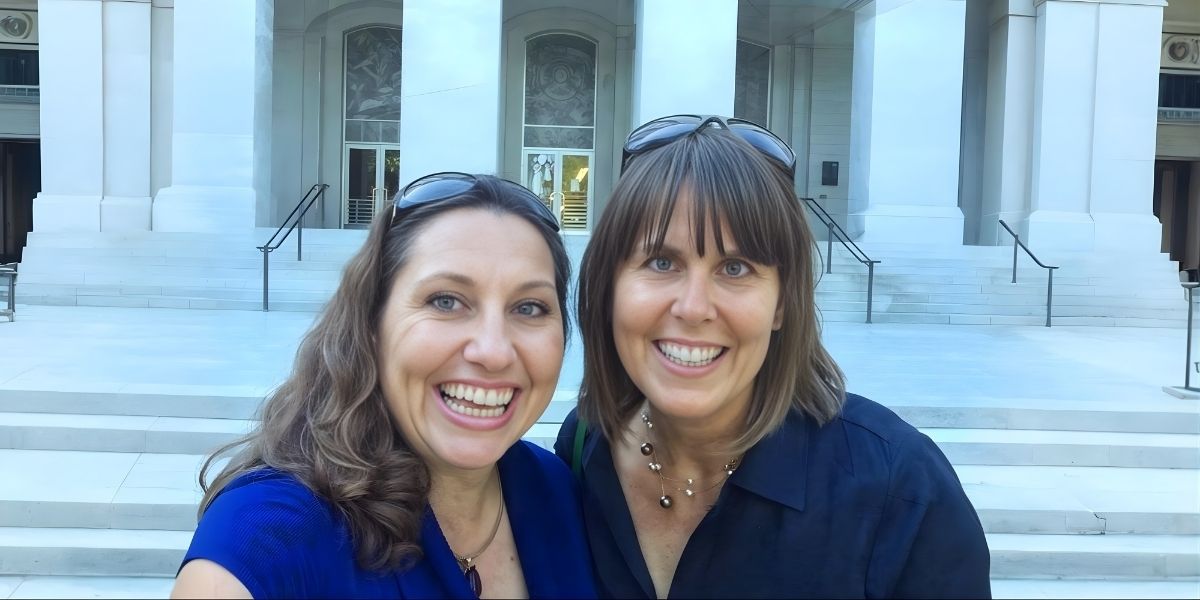By: Emily Rumball
After nearly a decade helping enterprises implement AI and data solutions at Microsoft and Google, Fahd Rafi found himself wrestling with a question: Was this the ideal way he could align all of himself with what he could do for the world? He was doing meaningful work, but he couldn’t shake the feeling that there might be a better way to maximize his impact, with complete freedom in how he approached solving problems.
So he made a decision—leave the corporate umbrella and figure out how to solve real problems with AI, even if he didn’t know exactly what that would look like. Time would tell whether this path would prove more valuable than the one he left behind. That journey became the foundation of Noodle Seed, a San Francisco Bay Area–based startup changing how software gets built, sold, and scaled.
Today, Noodle Seed helps businesses of all sizes build working prototypes of AI-powered apps and agents without code, complex onboarding, or six-month dev cycles. You don’t need a tech team—you just need a business problem. The platform creates functional prototypes with actual working backends and services, with the vision of eventually automating everything from business conversation to live production deployment.
But what makes this story different isn’t just the technology and a new business model. It’s the leadership mindset behind it, and the people-first culture being created alongside the product.
Betting on Themselves First
“I didn’t have a business plan or even a product in mind,” Fahd reflects. “What I had was a deep conviction that there were countless problems waiting to be solved with these new AI tools, and I wanted to find and solve some of them with freedom.”
That’s where people like Asad Iqbal came in.
“Asad was one of the first to see the potential in what we were exploring,” Fahd says. “He joined as co-founder when this was still more vision than reality.” That leap of faith has been echoed across the early founding team, many of whom walked away from stable jobs to build something meaningful. “A few months ago, we were still figuring out our direction,” Fahd adds. “Today, we have a clearer sense of the value we can provide and how these AI tools enable a different business model for personalized or custom software. We’re continuing to reduce risk for others who want to join us.”
Leading Through Autonomy
Fahd and his co-founder, Asad, describe their leadership style as completely anti-traditional. “Think of us as a platform for our team members, just like we build platforms for our clients,” Fahd explains. “Everyone’s role matters, from the lead engineer to the person making process improvements.”
“But what really sets their approach apart is brutal honesty. ‘I tell everyone who joins us that success is not assured,’ Fahd says. ‘Companies that recruited me never shared the messy, nitty-gritty details. We want people to join us not because we’re successful or because we offer assurances—we want people who are comfortable taking a bet on themselves without any promises.”
It’s not just philosophy. Team members are given company cards to try new tools, make independent decisions, and test bold ideas without waiting for approval. “If we’re hiring someone, we’re trusting them to figure out how to deliver—not just wait for instructions,” Fahd explains.
This approach drives Noodle Seed’s ability to innovate at speed. “Some of our transformative product features came from experiments we never planned,” Asad shares. “Because we empower people to act fast, we learn fast.”
The Mission: Freeing People for Creative Pursuits and Building Meaningful Relationships
Noodle Seed’s vision is about more than just software. “With the rise of artificial intelligence, the role people play becomes even more important,” Fahd explains. “People are naturally better at true creativity and building meaningful relationships, not doing mundane tasks.”
This belief stems from a simple truth. “No child ever dreams of growing up to process support tickets or debug code,” Fahd reflects. “Children have creative ambitions—they want to become artists, create products, and provide services that make other people’s lives better. These are the things that truly motivate people and differentiate us from machines.”
The company’s mission is to enable exactly that shift. “We want to build a platform that helps people focus their time and energy on creative pursuits and building real relationships—not the meaningless CRM-type interactions, but genuine human connections,” Fahd says. “People derive energy from creativity and meaningful relationships. That’s where we should be spending our time.”
From a business standpoint, they’re building what Fahd calls “the category of Business Solutions as a Service. We’re not selling developer tools—we’re selling the actual solutions, custom-built for each client through conversation.”
Imagine telling an AI, “I need a tool that sends reminders for unpaid invoices,” and watching it build the entire backend, frontend, and automation logic for you.
That’s not fiction. Early clients have used Noodle Seed to create custom business automation solutions, from follow-up agents to operational dashboards. “This is the kind of impact that makes the journey worth it,” Fahd says.
But what really sets Noodle Seed apart, he insists, isn’t the AI. “We’re solving for real customer outcomes, not just building flashy tech. We’re turning what used to be a six-figure custom development project into an ongoing service.”
Building Trust and Culture
Noodle Seed’s hiring philosophy is just as intentional. “We hire slow,” Asad says. “Because one wrong hire can dilute the entire culture we’re building.”
The team looks for people who don’t just want a job—they want a platform. “This isn’t for people waiting to be told what to do,” Fahd adds. “This is for people who want to bring their ideas to our vision.”
The cultural fabric is maintained through high trust, high expectations. “It’s okay to fail,” Fahd says. “What’s not okay is not trying hard things.” Goals are set ambitiously, and team members are trusted to define how they’ll get there. Daily standups, async updates, and frequent communications keep everyone aligned, but creativity isn’t stifled in the name of process.
Navigating the Chaos of AI—and Thriving in It
Fahd and Asad admit they can’t predict where AI will be in five years—and we’re okay with that. “I used to build long roadmaps,” Asad says, “but in AI, those get outdated in 30 days. Now, we build for agility, not certainty.”
Asad echoes this sentiment through a mantra he shares often with the team: “Bias toward action. Try the thing. See what happens.” That’s how Noodle Seed keeps moving forward—by building on top of emerging tech as it’s released, not waiting for a consensus.
Prompting has already become a core skill across roles at Noodle Seed. “This isn’t just for engineers,” Fahd says. “Everyone needs to learn how to talk to AI and connect their AI of choice to the tools and resources they use every day.”
The Long-Term Vision
Where does this all lead?
“Five years from now, I want to look back and see that we helped restore people’s relationship with work and business,” Fahd says. “Instead of spending their days on mundane tasks, people will be using their time for what they’re actually good at—creating, innovating, building genuine relationships.”
The vision extends beyond just business efficiency. “We want to be part of a world where AI handles the routine work, so people can focus on what gives them energy and purpose,” Fahd explains. “When someone thinks about their day at work, it should be filled with meaningful challenges, creative problem-solving, and real human connection.”
“The real opportunity isn’t in building better tools for developers,” Fahd adds. “It’s in creating a future where technology serves human potential, not the other way around.”
Disclaimer: While the article discusses the vision and business model of Noodle Seed, no guarantees or assurances are made regarding the success or outcomes of the company’s initiatives. The content is for informational purposes only and should not be interpreted as financial, business, or career advice.









